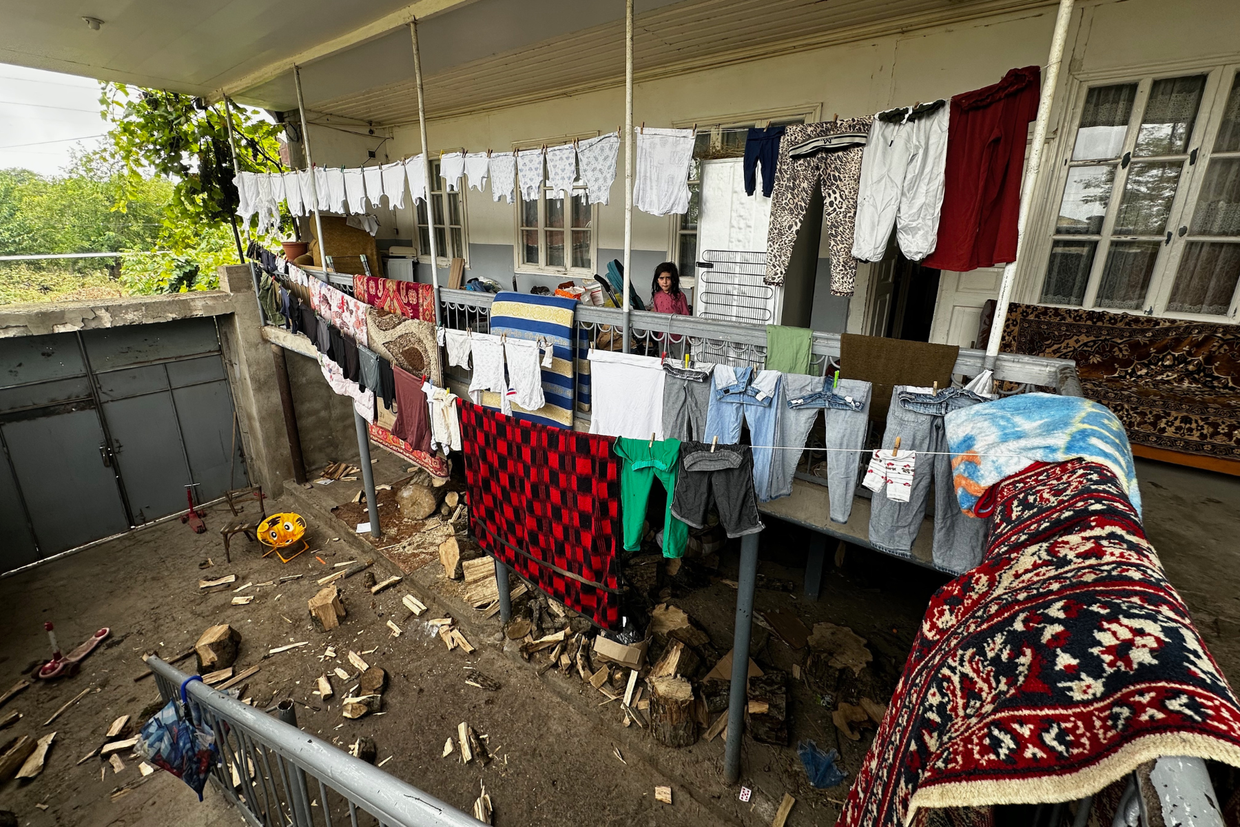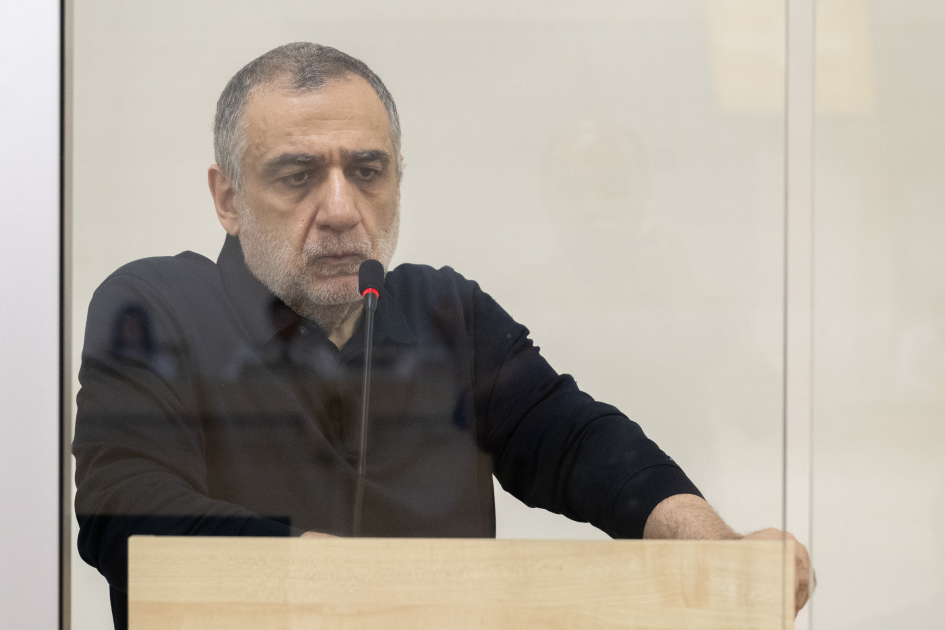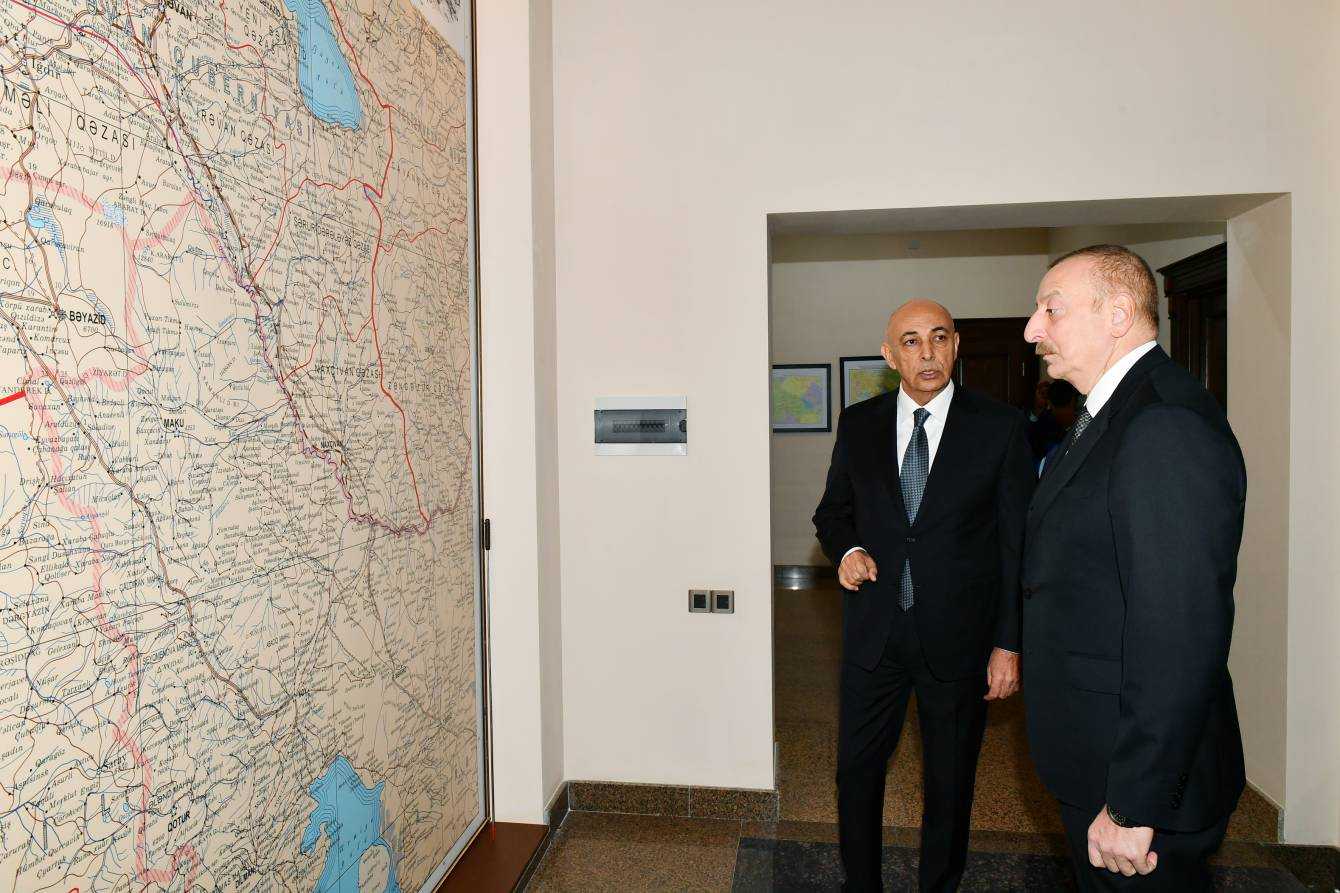Azerbaijani prosecution demands lengthy sentences for 15 Nagorno-Karabakh leaders

Azerbaijan’s Prosecutor General has demanded that Nagorno-Karabakh’s detained former leadership, which includes three former presidents and 12 other officials, be handed sentences ranging from 16 years to life imprisonment.
The former officials are accused of committing crimes against peace and humanity, war crimes, genocide, violations of laws and regulations of war, terrorism, financing terrorism, and the forcible seizure of power and its subsequent retention.
They were all detained in the aftermath of Azerbaijan’s final assault on Nagorno-Karabakh in 2023 and its takeover of the region following its surrender and the mass exodus of its entire Armenian population.

According to pro-government media outlet APA, on Thursday, the prosecution proposed life sentences for former President Arayik Harutyunyan, former presidential adviser Davit Babayan, former parliamentary speaker Davit Ishkhanyan, military commander Levon Mnatsakanyan, and deputy commander Davit Manukyan.
Former presidents Arkady Ghukasyan and Bako Sahakyan and another detainee, Madat Babayan, were all spared life sentences due to being over 65 years old, with the prosecution demanding they be sentenced to 20 years instead.
The remaining defendants face between 16–19 years in prison.
According to APA, their trial is scheduled to continue on 27 November.
The prosecution has yet to propose sentences for former Nagorno-Karabakh State Minister Ruben Vardanyan, who is being tried separately. His next court hearing will take place on 18 November.
They are amongst 23 Armenian prisoners in Azerbaijani custody. Trials have proceeded in secrecy, and reports have surfaced of psychological pressure and mistreatment of detainees. Azerbaijani authorities have rejected those allegations, claiming that all cases are being handled in accordance with the law.
The trials are taking place against the backdrop of ostensibly intensifying peace talks between Armenia and Azerbaijan.
In late October, Armenian Foreign Minister Ararat Mirzoyan noted progress made towards peace, but said several humanitarian and political issues remain unresolved, particularly the fate of Armenian prisoners still held in Baku.
‘When we talk about the institutionalisation of peace, we must acknowledge that there are still complex, unresolved issues — and the return of captives is among them’, he told lawmakers. He described the issue as ‘a major obstacle’ to lasting reconciliation and ‘an expression of the distrust and enmity that have marked relations for decades’.
For ease of reading, we choose not to use qualifiers such as ‘de facto’, ‘unrecognised’, or ‘partially recognised’ when discussing institutions or political positions within Abkhazia, Nagorno-Karabakh, and South Ossetia. This does not imply a position on their status.

This article was translated into Russian and republished by our partner SOVA.










